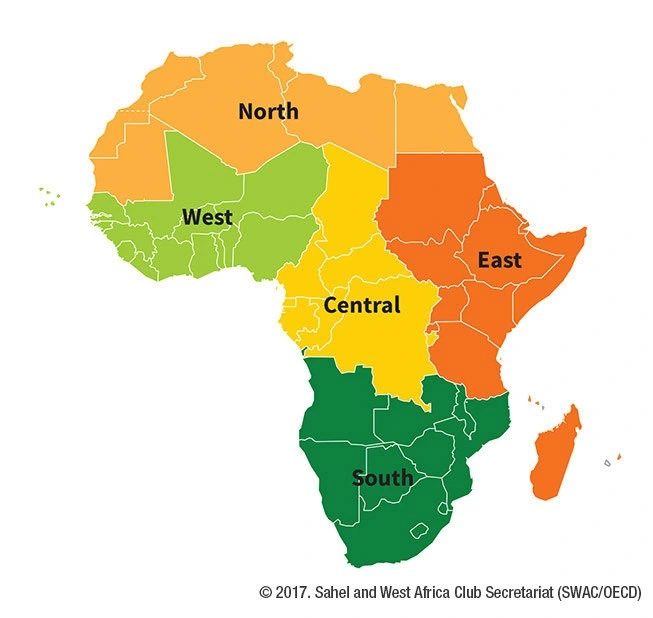West Africa
Malian junta leader Assimi Goïta has received formal endorsement for a five-year extension of his leadership. According to the declaration, his mandate may be “renewed as many times as possible.” All 131 members of the transitional assembly unanimously approved the proposal when it was presented to them, effectively granting the junta leader a legal basis for extended and potentially indefinite rule.
This development follows months of widespread political opposition, with civil society groups and opposition parties accusing the military-led government of laying the groundwork for permanent authoritarian control. Despite initial promises of a swift democratic transition, critics say the junta has instead taken steps to consolidate its grip on power. In response to dissent, authorities have restricted political activities and curtailed freedoms, creating a repressive political climate.
Similar actions have been observed in Burkina Faso and Niger, where military leaders have also extended their transitional mandates, defying regional expectations for a return to civilian rule. These moves are contributing to a deteriorating political landscape across the Sahel, with increasing concerns over democratic backsliding, political risk, and regional instability.
Efforts by regional actors—including Togo, Senegal, and Ghana—to mend relations between the junta-led states and the Economic Community of West African States (ECOWAS) have thus far proven unsuccessful. Tensions peaked last year when ECOWAS threatened a military intervention in Niger, prompting Mali, Burkina Faso, and Niger to withdraw from the regional bloc, ending their decades-long membership dating back to 1975.
With Russia reportedly backing the juntas, the breakaway states have grown increasingly defiant, accusing ECOWAS of being manipulated by Western powers and acting against their sovereignty.
On the domestic front, opposition parties in the three landlocked nations have been systematically marginalized. Political rallies have been banned, dissent suppressed, and public protests swiftly met with force. The growing climate of fear and repression, coupled with continued insurgent violence in some regions, is undermining both political stability and prospects for inclusive governance.
Southern Africa
Zambia’s Ministry of Health has officially declared the end of the country’s most recent cholera outbreak, which claimed nine lives from a total of 495 confirmed cases. While authorities consider the immediate threat contained, health officials have cautioned the public that the risk remains high, especially given that the underlying causes of the outbreak—such as poor sanitation and limited access to clean water—persist.
The country is currently grappling with a severe drought, which has exacerbated water scarcity and heightened the risk of waterborne diseases. In response, the Zambian government has implemented a series of preventive measures, including the prepositioning of medical supplies and the establishment of community-based surveillance systems in high-risk areas. Citizens have been urged to maintain strict hygiene practices as part of continued efforts to prevent a resurgence.
Meanwhile, Zambia is increasingly becoming a focal point for foreign investment, largely due to its abundant mineral wealth, especially in copper and cobalt. The country is central to the Lobito Corridor project, a key infrastructure initiative backed by the United States to link southern and central Africa to the Atlantic coast via Angola.
In addition to U.S. interests, China continues to maintain a significant presence in Zambia’s mining sector, while India reportedly dispatched a mineral exploration team a few days ago to assess new opportunities in copper and cobalt extraction. These developments signal Zambia’s growing strategic importance in the global clean energy transition, which depends heavily on critical minerals.
Despite the investment inflow, Zambia continues to face significant socioeconomic challenges. These include high youth unemployment, widespread poverty, and a substantial infrastructure gap in critical sectors such as education, healthcare, and transportation. The government’s ability to translate mineral wealth into broad-based development remains a key test of its long-term economic strategy.
Central Africa
The former first family of Gabon has publicly accused the country’s military authorities of torture and human rights abuses following the 2023 coup d’état, which ousted long-time President Ali Bongo Ondimba.
Testifying in Paris, members of the Bongo family alleged that they were subjected to inhumane treatment, including the mistreatment of a one-year-old child, while in custody. They claim the military junta employed propaganda tactics and coercive measures to vilify them in the public eye and force them into signing documents forbidding them from speaking about their detention. This, they say, was a prerequisite for their release and relocation to Angola.
The family has described the junta’s actions as acts of “sequestration, arbitrary detention, torture, and barbarity.” They have vowed to pursue legal and diplomatic avenues to make their experiences known internationally. Notably, Ali Bongo, his wife Sylvia, and their son Noureddin are all French citizens, which has added an international dimension to their legal claims.
After ruling Gabon for over a decade, Ali Bongo’s presidency ended abruptly in August 2023 amid allegations of widespread corruption and election manipulations. His wife and son were frequently cited in local and international media reports for their alleged roles in financial mismanagement and abuse of office. Despite these accusations, both were unexpectedly released earlier this year following a landslide election victory by Brice Clotaire Oligui Nguema, the transitional president and former coup leader.
Observers note that President Nguema is a relative of the Bongo family, which may have influenced the decision to grant clemency. The move has been interpreted by some analysts as an attempt to ease internal tensions and demonstrate a break from the more punitive approaches of the immediate post-coup period.
Despite lingering uncertainty, the political risk outlook in Gabon remains relatively stable, especially when compared to West African states experiencing post-coup turbulence.
image source: OECD
